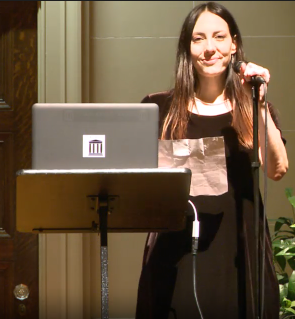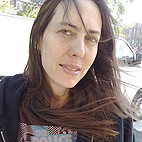Thank you everyone for coming. We have a lot of material to cover tonight, and then a whole movie to watch afterwards, so I will keep my opening remarks brief and to the point.
This year’s event’s theme is “setting the record straight” so that we can move forward. To me, this means providing a better understanding of Aaron’s actions, and how the entire situation became a misunderstanding of epic proportions that pretty much spiraled out of control.
There are a few initiatives underway designed to prevent this from ever happening again, and aimed at protecting innovators, such as Aaron, from relentless prosecution by third parties that don’t understand the nuances of the parties involved. We’ll hear from the EFF’s April Glaser, who will tell us about the upcoming Freedom to Innovate conference, which is designed to protect future student innovators from legal prosecution that victimized Aaron.
Through a combination of learning more about Aaron’s case, which we are going to do tonight, and having access to things like Aaron’s FBI and Secret Service files, which we are beginning to be released to us little by little, thanks to Kevin Poulsen’s Freedom of Information Act requests – can we begin the process of fully understanding what happened to Aaron, so that we can be sure to try to stop it from happening to anyone else.
Cindy Cohn, soon to be the EFF’s new Executive Director, will explain to us why CFAA reform is firmly stalled in both houses. (Probably now more than ever.) Finally, Dan Purcell, from what was Aaron’s new legal team, is here tonight to help us understand what their strategy was going to be for clearing his name at trial.
2013 and 2014 were big year’s for many of Aaron’s projects and ideas. He received a posthumous EFF Pioneer Award in 2013, and was inducted into the Internet Hall of Fame as well that year, on the same night as Vint Cerf and John Perry Barlow. Aaron surely would have been pleased to be in such distinguished company.
I think he would also be pleased to see his DeadDrop prototype blossom into the SecureDrop whistleblowing submission platform that now has 15 instances in full swing, protecting leakers from our government’s spying eyes, and enabling submissions to prestigious news organizations such as The Guardian, The Washington Post, the New Yorker, and Forbes. I also think he would’ve been proud to see his mentor Lawrence Lessig and his MAYDAY PAC team raise over 10 million dollars to fund congressional candidates committed to fundamental campaign finance reform. Remember, Aaron is the one who challenged Lessig to set out on his new course, way back in 2007.
So join us tonight, along with hackathoners in 12 16 cities around the world, as we celebrate Aaron, set the record straight about not only what he did not do, but about what was done to him, and try to find a way to move forward together, and continue to make the world a better place. Thank you.

